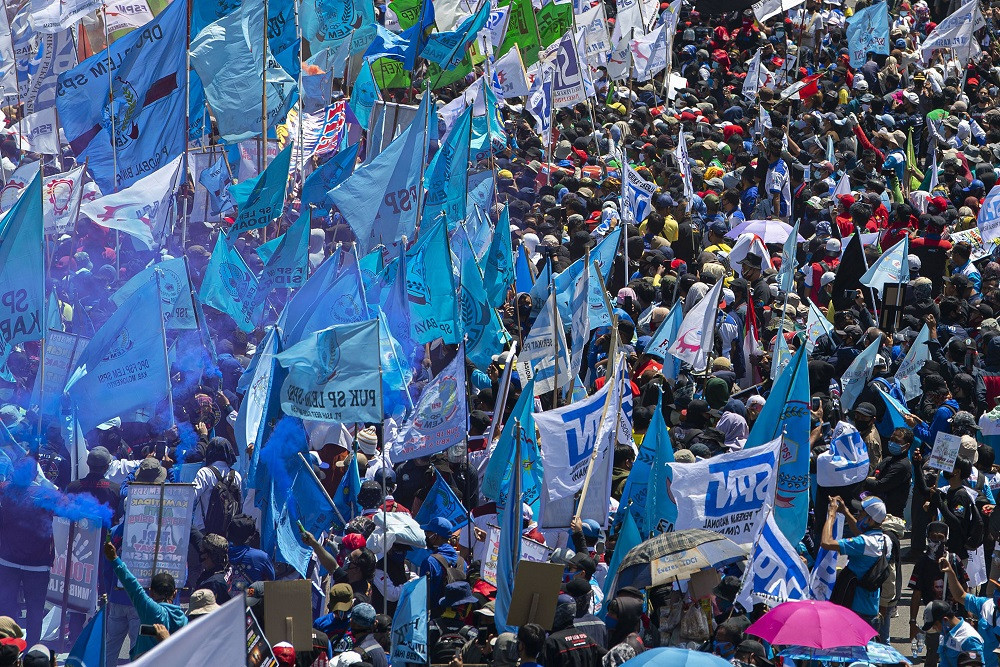Popular Reads
Top Results
Can't find what you're looking for?
View all search resultsPopular Reads
Top Results
Can't find what you're looking for?
View all search resultsInternational labor union federations write to Jokowi to protest omnibus law
Change text size
Gift Premium Articles
to Anyone
G
lobal union federations have urged President Joko “Jokowi” Widodo to repeal the recently passed omnibus law on job creation, which they say undermines labor rights and strips away environmental protections, among other things.
The Building and Wood Workers’ International (BWI) wrote in a letter sent to Jokowi on Tuesday that the law appears to “put the interests and demands of foreign investors ahead of workers, communities and the environment”, and thus called on the Indonesian government to rethink its priorities.
It also urged the government to renegotiate and open constructive dialogue with trade unions on the law, which was passed on Monday despite strong opposition from workers and civil rights activists.
The International Trade Union Confederation (ITUC) echoed BWI’s sentiments and said that the government should withdraw the law and enter into constructive discussions with Indonesian trade unions about any changes made to labor provisions in the law.
Read also: Guide to omnibus bill on job creation:1,028 pages in 10 minutes
“It is staggering that while Indonesia is, like other countries, facing the devastation of the COVID-19 pandemic, the government would seek to further destabilize people’s lives and ruin their livelihoods so that foreign companies can extract wealth from the country,” the ITUC wrote in a statement.
Though meant to simplify regulations and attract investment, the law has been severely criticized for revising several regulations that would affect multiple sectors, including significantly relaxing environmental standards for business activities by no longer requiring an environmental impact analysis (Amdal).
Amnesty International Indonesia has lambasted the “catastrophic” law, calling it a threat to human rights that could harm labor rights and exploit workers.
The rights group’s executive director Usman Hamid underlined that the new regulation would give dangerous leeway for employers to massively exploit workers across the country.
“[It] allows employers to keep workers on temporary contracts for an indefinite period of time [...] The provision poses the potential risk of enhancing insecurities at work and leaving millions of workers without adequate protection,” Usman said, citing other problematic points of the law, including unclear provisions on minimum wage and working hours.










